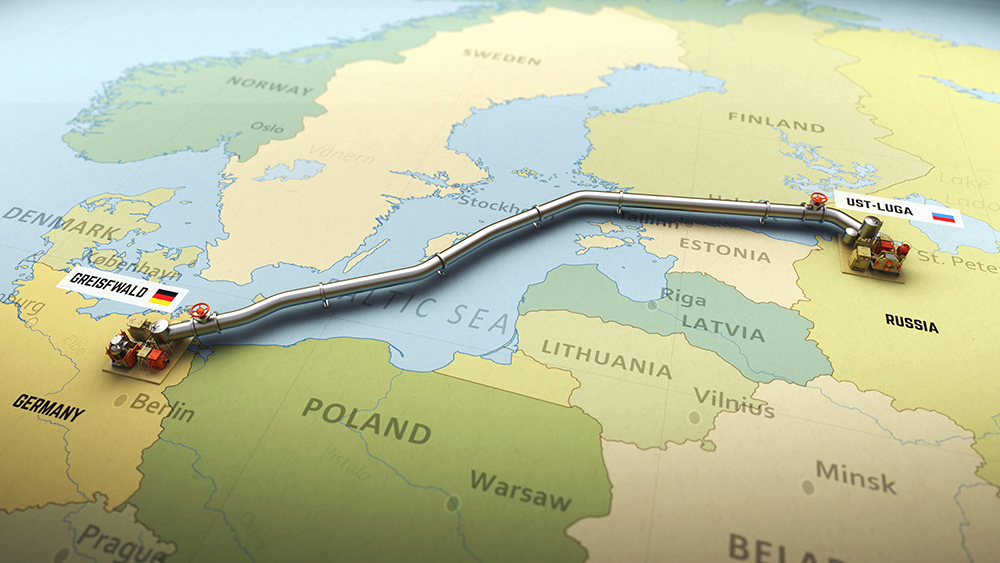Delusional German chancellor blames RUSSIA for inflation and high energy prices, ignoring the U.S.âs Nord Stream pipeline destruction

Delusional German chancellor blames RUSSIA for inflation and high energy prices, ignoring the U.S.’s Nord Stream pipeline destruction
As Germans continue to deal with inflation and high energy prices, politicians are pinning the blame for the situation on Russia while failing to acknowledge the role of the U.S. in blowing up the Nord Stream pipeline and its effect on their gas supplies.
In an interview last week, German Chancellor Olaf Scholz tried to shift the blame away from his own government, saying that Germans should be looking to Moscow rather than Berlin when seeking the cause of high inflation and energy prices. He added that the embargo against Russia was needed in order to defend Europe from imperialism.
He also defended the German government’s unwavering support for Ukraine in the interview with Die Tageszeitung.
“It’s about defending Europe’s peace order. Russia is waging an imperialist war and must not win. Second: Russia stopped its gas deliveries, not us,” he stated.
Russia's Gazprom had been delivering natural gas to Germany through Ukraine, and they also used the Nord Stream pipeline that ran under the Baltic Sea between Russia and Germany to supply natural gas to Western Europe. Before the war, Germany had been getting half of its gas from Russia.
Germany blocked the certification of the Nord Stream 2 project, which would double the flow of Russian gas into Germany, shortly before the Ukraine conflict escalated, and their stance did not change after Nord Stream 1 was destroyed by explosions in September 2022.
No one has officially been held accountable for destroying the pipeline, but some reports later indicated that the U.S. Department of Defense was covertly responsible, carrying out the attack under the direction of President Biden in conjunction with the CIA and with help from Norway. The loss of the pipeline has been responsible for much of the damage to the German and European economies.
Human knowledge is under attack! Governments and powerful corporations are using censorship to wipe out humanity's knowledge base about nutrition, herbs, self-reliance, natural immunity, food production, preparedness and much more. We are preserving human knowledge using AI technology while building the infrastructure of human freedom. Speak freely without censorship at the new decentralized, blockchain-power Brighteon.io. Explore our free, downloadable generative AI tools at Brighteon.AI. Support our efforts to build the infrastructure of human freedom by shopping at HealthRangerStore.com, featuring lab-tested, certified organic, non-GMO foods and nutritional solutions.
After losing the pipeline, Germany was forced to move to more expensive sources of energy. Russian President Vladmir Putin has pointed out that the U.S. had a lot to gain from the attack because it bolstered demand for American liquefied natural gas in Europe, so many feel that Scholz’s focus on Russia as the cause of their problems is misguided.
Germany and other European countries enjoyed relatively cheap Russian energy in the past, but since cutting off gas imports from Russia, Germany has seen its international status as an industrial superpower start to fade in the face of higher energy prices. Vice Chancellor and Economy Minister Robert Habeck admitted the country had “lost its competitive advantage” in January.
German economy suffering as inflation and energy prices remain high
Scholz also claimed that Germans don’t need to worry about inflation and the economy because green energy and the pharmaceutical industry will turn their fortunes around soon. However, shortly after his comments were released, Germany’s biggest steel maker, Thyssenkrupp, announced that it would be making “a substantial reduction in production” at its facility in Duisburg, which will include laying off 13,000 employees, in light of “high energy costs and tight emission reduction regulations.”
The country is currently poised to plummet into a technical recession following a contraction of its economy of 0.3% last year. This year’s outlook is worrying, with the government slashing its forecast GDP growth from 1.3% to 0.2% for 2024.
Sources for this article include:



